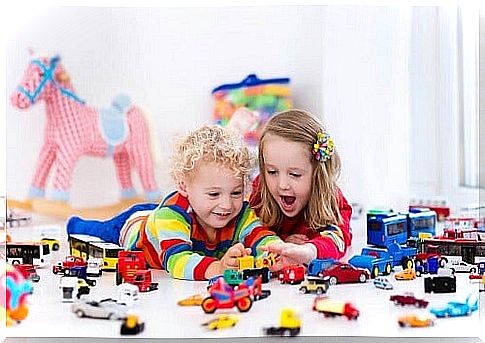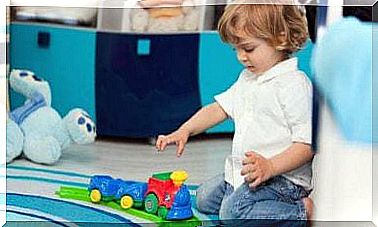Why Do Your Children Fight All The Time?

In matters of education and rules of behavior, sharing one’s experiences with other parents is essential. Both to get feedback on their strategies and to learn new solutions and points of view. For example, if by chance your children quarrel often, it can be interesting to adopt new methods for easing and resolving conflicts. Both boys and girls.
In fact, during the first years of life, natural selfishness (triggered by the primitive struggle for survival) makes it difficult to share spaces, affections and toys. Currently, behavioral education models advise fathers and mothers to respect children’s development and learning times. This will allow you to solve problems even when your children often argue .
Play, fight, challenge …
If two or more children argue, keep in mind that these are normal situations: obviously without exaggerating. In most cases, it is a healthy confrontation induced by the need to experiment and test oneself. However, it should be normal that, at the end of the discussion, the children resume playing without violent aftermath. Positive resolution is certainly the most desirable ending.
What should worry you, and lead you to consult with specialists, is the presence of constant aggression. If one of the brothers mistreats the other or the others unjustly and repeatedly, this way of acting may be due to a problem that goes far beyond the fraternal relationship. Autism spectrum disorder (ASD), for example, may cause some children to overreact towards those around them.
In any case, if quality care is offered to your children, it will be possible to overcome such ailments with therapeutic help. In fact, in most cases, even children with ASD manage to socialize with their siblings at the end, finding a balance.

Your children are fighting all the time: is this normal?
We repeat: a situation of “normality” provides for reconciliation, after a few minutes of “struggle”. However, sometimes it is the parents themselves who, with their intervention, make it difficult for their children to have a good relationship. Doubts are understandable: how should limits be set? How to stop and intervene in the fight? What to do if a child is unable to restrain the violent impetus towards siblings?
These physical conflicts can go through several stages. Perhaps it starts with the dispute over a toy, then moves on to the bicycle, the video game console or the rivalry in the group of friends. It may happen that there is a child who is more confrontational than the others. Faced with these situations, labeling is one of the most frequent mistakes of parents. And this is evident in the comparison with the therapist, to whom they often ask, frightened, if this conflict is due to some serious and unsolvable problem.
Even today, sadly, many fathers and mothers make the grave mistake of considering the most confrontational child as “bad” or “weird” (two simple types of labeling), constantly blaming him for his violent conduct. Applying the concept of badness to a child so explicitly and repeatedly can have devastating consequences: they can end up convincing themselves that they are “really” evil. Therefore, it is vital that you address your children with respect and using the right vocabulary. The goal is not to humiliate or apostrophize them, but rather to convince them to calm down and curb the situation.
The causes of disputes and mediation
Identifying the reasons that triggered the struggle is fundamental: each child can have different motivations and it is necessary to make an effort to understand them. Furthermore, many times behind these behaviors are fears or insecurities that your children are not yet able to express. For this reason, parents must, first of all, get used to observing and listening. By doing so, they will be able to understand what causes the constant clashes between little brothers or sisters.
When two or more children argue, it is not enough to ask whether these disputes are normal or to label one of the children as violent or aggressive. You will have to do everything possible to identify the causes and do everything possible to overcome them together. Just to give an example, in the minds of the little ones even the mere fact of protecting a new toy is enough to push them to fight.

It is also important that children always feel the presence and bond with their parents. In fact, the mediation of adults must necessarily be complete and empathetic. Opening up to dialogue, knowing how to communicate and dialogue, listening to everyone’s opinions should be part of a healthy education in all families.
If parents are not sufficiently present, due to lack of time, work needs, or other reasons, children may use quarrels to express their loneliness. They need the company of adults in order to learn to deal with other individuals, in compliance with rules valid for all brothers.
In conclusion, if your children are arguing, it is essential that you always be a great example of dialogue and understanding. Teach the little ones of the house to share toys and spaces, as well as to listen, to be patient and to know how to forgive loved ones.









